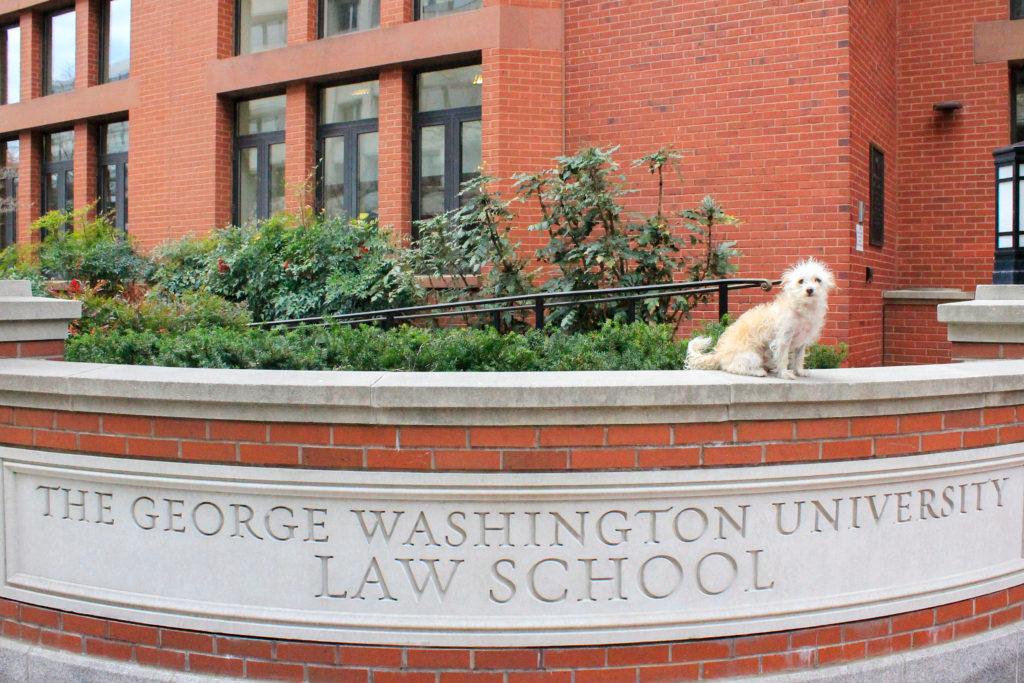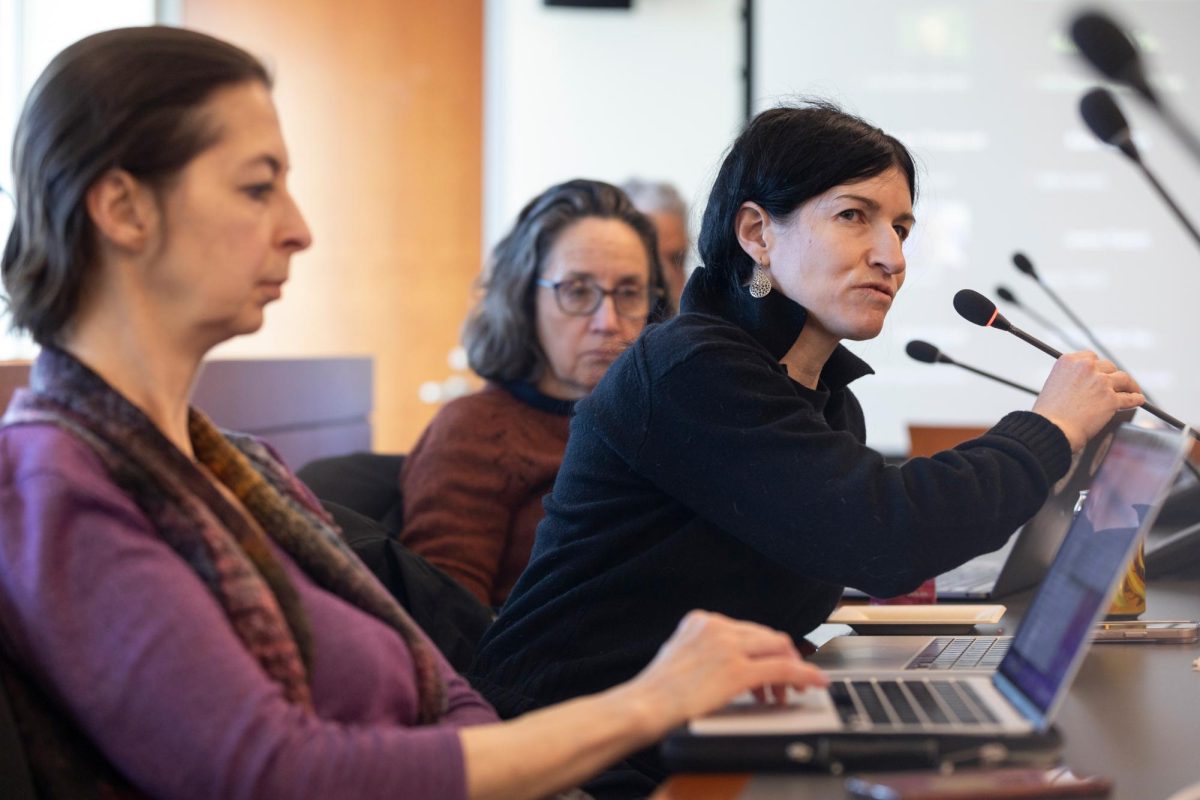GW Law is forming a partnership with an animal advocacy nonprofit to make animal law a stand-alone legal discipline.
Law school faculty said the Animal Legal Education Initiative will partner with the Animal Legal Defense Fund to introduce a series of courses, four new fellowships, training programs and a clinic on legislative animal law during a five-year span. The type of law includes any legal practice involving animals and is an interdisciplinary study that can be applied to practices like environmental and family law, where pets and agricultural animals can be the subject of a ruling.
Stacey Gordon Sterling, the director of animal law at the Animal Legal Defense Fund, said GW will work to expand fellowships and faculty training to increase law professorships. She said the initiative sets the law school apart from flagship animal law programs like those at Harvard and Yale universities that focus on scholarship.
“We need attorneys that have had animal law courses and experience and can hit the ground running well,” she said. “The only way we’re going to have those attorneys is if animal law is integrated across the country into law school curriculums.”
GW Law currently offers six animal law courses with two professors and three professorial lecturers in the field.
Sterling said the law school and Animal Legal Defense Fund have created a five-year plan and raised enough money to fund a new assistant dean position through the initiative, but the partnership will need to raise between $5 million and $10 million to launch the clinic and grow the curriculum – a roughly three-year process. She said the initiative would need to fundraise in new markets beyond regular sources like the defense fund and other organizations, like general legal education organizations.
Sterling said animal law programs should expand to meet the influx of cases in recent years, a result of growing public concern for animal rights and climate change. She said GW’s program will focus on court case and litigation training for law faculty and students to improve their exposure to the field.
“I think this one is even more focused on practice, getting in experience and getting to practice for the teachers but also for the students,” she said.
Animal law cases have made national headlines in recent years, notably in 2016 when a Cincinnati Zoo gorilla named Harambe was shot and killed after a toddler crawled into the pen in 2016, sparking outrage and fueling public demands for animal legal advocates to question its legality. National lawmakers also hoped the popularity surrounding the Netflix show “Tiger King” would rally support for a bipartisan bill introduced before the U.S. Senate to increase protection for large jungle cats like tigers and lions.
Joan Schaffner, an associate professor of animal law who serves as the law school initiative’s primary contact with the defense fund, said similar programs at other schools often only employ adjunct faculty who may teach one or two courses. Ze said the program would develop a discipline to “comprehensively” address animal law disparities like animal law policy and research, which are currently only addressed by programs at schools like Yale and Harvard universities.
“This initiative is designed to fill this void, devoted to animal law scholarship and education, while simultaneously providing opportunities for students to learn and practice animal law, affect policy and develop an animal law discipline more broadly,” Schaffner said.
Schaffner said the number of requests for assistance the Animal Legal Defense Fund’s Pro Bono Network has received has increased by about 341 percent in the first nine years of the program. Ze said animal law cases and discussion have increased in recent years with larger interest in the possible animal-related origins of diseases throughout the COVID-19 pandemic and the “exponential” growth of the vegan food industry and animal product alternatives.
Animal law experts said the program can highlight the interdisciplinary applications animal law has across the legal field including in the ongoing conversations about animals’ connection to climate change.
Mariann Sullivan, an adjunct professor of animal law at Cornell University, said the practice can be applied in a number of other fields of law like divorce law regarding custody disputes over pets, landlord tenant law concerning pet restrictions and tort law involving dog bites.
“Virtually any course you take in law school could have an animal law part to it because it touches so many areas,” Sullivan said. “There does seem to be a real focus on integrating it so that it isn’t just a small cohort of people advocating for animals, but that everybody comes to understand an important part of preserving our world and making it a good place to live.”
Penny Ellison, an adjunct professor of animal law at the University of Pennsylvania, said animal lawyers go head-to-head with a number of organizations and departments in their litigation. She cited animal law cases like the Animal Law Defense Fund argued against the Agriculture Department, as well as agriculture departments in cities and states, the National Park Service and private food companies like dairy company Tillamook.
“Between climate change and the rate of extinction of species, the need to get advocates ready to fight against the much better funded opposition is crucial,” she said in an email.








